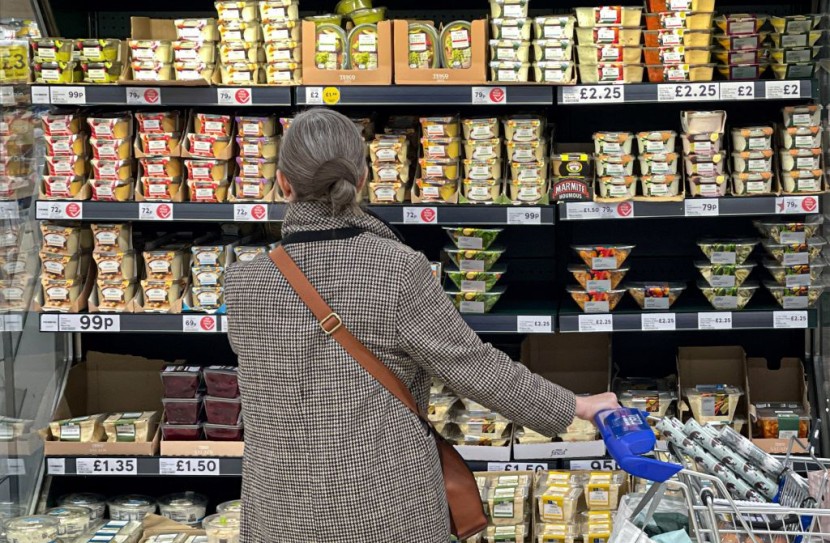
Data reveals that a million individuals in the United Kingdom went without food for a whole day last month as the cost of living increased.
In the previous month, 4.7 million people, or 8.8% of households, suffered from food scarcity, up from 7.3 percent in July 2021, according to The Food Foundation.
Because they couldn't afford it or didn't have access to it, 1 million of them stated they or someone in their household had to go without food for an entire day.
Britons Worry About Food, Energy Prices
To pay basic necessities, such as electricity costs, 62 percent of households have had to increase their energy bills, and 16 percent have had to cut back on the quality or quantity of food, according to the charity, highlighting the impact of the growing cost of living.
Increased energy prices, on the other hand, have frightened 59 percent of households that they would not be able to purchase enough food for themselves or their families. Prices are expected to continue to climb at a quicker rate than last year, according to the British Retail Consortium, indicating that the cost of living issue will only get worse.
It comes as Asda's Smart price collection has been reduced in price and made more widely available, according to poverty advocate Jack Monroe. Monroe had provided proof that the cost of the cheapest pasta at her local grocery had increased by 141 percent in a year while the cost of rice had increased by 344 percent.
After receiving her feedback, Asda promised to stock its lowest-price variety in all 581 stores and online. According to ONS figures, inflation reached 5.4 percent in December, the highest level in over 30 years. Meanwhile, energy costs are soaring, with the Bank of England forecasting a 7.25 percent increase in April inflation, according to the Sky News.
Russia-Ukraine Crisis Puts UK Food Supplies in Jeopardy
For the next two months, Russia has stated that it would halt exporting ammonium nitrate. In the agricultural business, the chemical compound is used as a fertilizer to increase the yields of crops including maize, cotton, and wheat.
According to reports, Russia accounts for roughly 62 percent of world production or about 20 million tonnes per year. According to Express.co.uk, the move will drive up food costs, according to Brandon Weichert, a geopolitical expert and author of Winning Space: How America Remains a Superpower. He cautioned that following a drought in Latin America, a key supplier of crops, the price of food has already risen.
The prohibition on the export of this chemical, according to Russia, will only be in place for a short period. This comes after Russia was chastised for allegedly raising global gas prices.
By cutting gas delivery to Europe through its massive network of pipes, the company has been accused of intentionally driving up prices to new highs. Even though the UK does not directly import Russia's pipeline gas, the surge in global energy markets has resulted in an energy crisis in the UK, with millions of people's bills skyrocketing, as per Express.
An agricultural boss has warned that the crisis between Russia and Ukraine is jeopardizing the UK's food supplies. The National Farmers' Union's president, Minette Batters, said the current international events are contributing to an already difficult position for Britain's farmers, which has been exacerbated by post-Brexit trade agreements, changes in agricultural laws, workforce shortages, and price increases.
Because the two Eastern European nations account for 30% of global wheat exports, Batters claimed a "perfect storm" is approaching for the UK. If climate change objectives are to be met, a conservation nonprofit claimed earlier this month that UK farmers must drop their meat and dairy production by a third over the next decade.
UK hog and poultry output, as well as the harmful imported feed they eat, must be curtailed, according to a WWF analysis. In combination with a severe drop in meat consumption, people's health would improve as well as their environment and wildlife, The London Economic reported.
@YouTube








